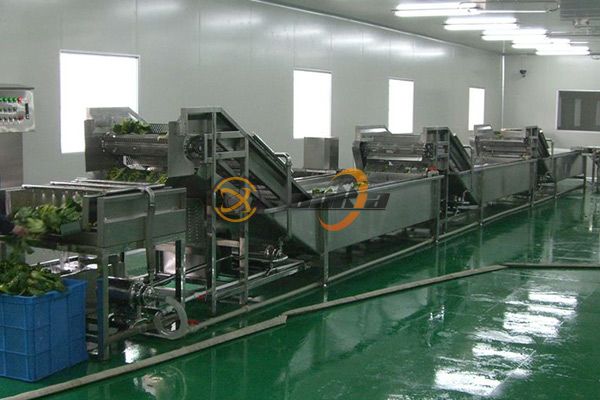As the global demand for fresh and processed vegetables continues to grow, vegetable washing machine manufacturers are increasingly turning to industrial-grade designs to meet the needs of food processors, central kitchens, farms, and commercial kitchens. But what exactly sets industrial-grade vegetable washers apart—and why do top manufacturers prioritize them?
This article explores the key reasons behind this shift and how industrial designs benefit both manufacturers and end users.
1. Built for High-Capacity Operations
One of the primary advantages of industrial vegetable washing machines is their ability to handle large volumes efficiently. These machines are designed for:
Continuous or batch processing of hundreds of kilograms per hour
Integration into automated production lines
Extended operation with minimal downtime
Manufacturers prefer this design because it aligns with the scalability needs of large food processing businesses and helps them offer robust, high-performance solutions.
2. Enhanced Hygiene and Food Safety Compliance
Food safety is a top priority for any food equipment manufacturer. Industrial-grade machines feature:
304/316 stainless steel construction for corrosion resistance
Ozone or UV sterilization systems to reduce microbial load
Water recycling and filtration units to maintain cleanliness
These features make it easier for food processors to meet HACCP, ISO, and FDA standards, which is why reputable manufacturers like LONKIA Machinery design their machines to exceed hygiene expectations.

3. Durability and Longevity
Commercial clients expect equipment that will last. Industrial vegetable washers are built with:
Heavy-duty components such as reinforced conveyors and sealed motors
Waterproof and dustproof electrical controls
Low-maintenance design with easy access to all cleaning and servicing areas
Manufacturers prefer these durable builds because they reduce warranty claims, build trust, and reflect the brand’s long-term reliability.
4. Customization and Modular Design
No two food factories are exactly alike. Leading manufacturers choose industrial-grade machines because they allow for:
Flexible configurations to fit unique processing layouts
Optional features like pre-wash tanks, dewatering sections, or air drying tunnels
Custom dimensions for integration into existing lines
This modularity gives manufacturers the ability to tailor machines for different industries—from leafy greens and root vegetables to fruits and seafood.
5. Energy and Water Efficiency
Modern food production demands sustainability. Many industrial-grade washers include:
Smart control systems for adjustable water flow and cycle timing
Water-saving spray systems with high-efficiency nozzles
Recirculating water tanks that filter and reuse rinse water
These features not only appeal to eco-conscious buyers but also provide manufacturers with a competitive selling point.
6. Global Market Demand
As more food businesses go global, equipment must meet international standards and operate under various power systems, voltages, and climates. Industrial-grade designs are:
Tested for international certifications (CE, UL, etc.)
Adaptable for export and local compliance
Reliable across diverse environmental conditions
This flexibility is essential for manufacturers expanding their customer base across regions like Southeast Asia, the Middle East, Europe, and the Americas.
Conclusion
For today’s vegetable washing machine manufacturers, industrial-grade designs represent more than just size and power—they symbolize performance, compliance, efficiency, and adaptability. That’s why brands like LONKIA Machinery prioritize these designs when serving the global food processing industry.
If you're in the market for a durable, efficient, and hygienic vegetable washer, choosing an industrial-grade model ensures long-term success and a reliable partnership with your equipment supplier.
